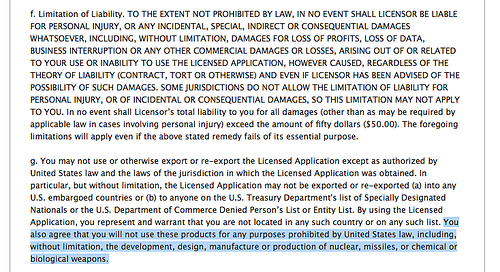In February, we were all surprised when we realized that our Samsung smart TVs are also spy machines, recording out familial living room conversations and handing them over to god-knows who.
You guessed it. It was in the user agreement. You are also right. No one reads them.
The new Snapchat agreement gives them the right to keep snaps and share them in any way they like. Par the agreement, users turn over rights they have to photos, videos and texts, to Snapchat immediately they’re uploaded.
By signing the agreement, the user grants Snapchat “a worldwide, perpetual, royalty-free, sublicensable, and transferable license to: host, store, use, display, reproduce, modify, adapt, edit, publish, create derivative works from, publicly perform, broadcast, distribute, syndicate, promote, exhibit, and publicly display that content in any form and in any and all media or distribution methods (now known or later developed),” the agreement reads.
While Snapchat has come out to say the clause only applies to photos and videos submitted to “Live Stories”, the irony of this is dizzying still. How did Snapchat get from “Delete is our Default” to “Archives of our indiscretion”?
But this is not about Snapchat. It’s about the end user licence agreements or software license agreements; the agreement establishing our right to use software or in some cases hardware. These days, they are mostly presented in digital formats. Makes it easy for us to just scroll to the bottom and “agree”.
PitStop, an anti-spyware firm, buried a note in its own EULA in 2005, saying they would give $1,000 to the first person who e-mailed them at a certain address to tell them about the bounty. It took four months and over 3,000 downloads before someone noticed, sent the e-mail and got the $1, 000.
Who knows how many other things in there that aren’t in the interest of the purchaser and no one has idea of?
There is an interesting list of ridiculous demands that some software makers baked into the EULAs in early 2000s. One of those is a Sony / EA clause that prevents users from instituting a class action lawsuit against the Playstation Network. Apple also had a clause that forbids users from using iTunes to develop, manufacture, produce missiles, nuclear, or chemical or biological weapons. Apparently, there were hidden weapon development options in iTunes. Shocker.

There are clauses insulating the licensor from litigation due to whatever twisted thing the purchaser used (or plans to use) the application for. And there are other clauses that say “you can’t hold us responsible if this Software blows up your PC”, usually called liability limitations clauses.
And almost everywhere, there are the clauses that say “we can switch things up on you, so keep your eyes peeled”.
Like this one from Ubermedia:
“In addition, we may change all or part of the EULA at any time. We may make changes to the EULA by posting the changed terms. Your continues use of software following Ubermedia’s posting of any changed terms will constitute your acceptance of the changed terms.”
The interesting bit here though is that, half the time, no one reads the EULA and we have to depend on the kindness of journalists and nitpicking geeks to see what sneaky document we’ve signed.
Photo Credit: Irregular Shed via Compfight cc

















